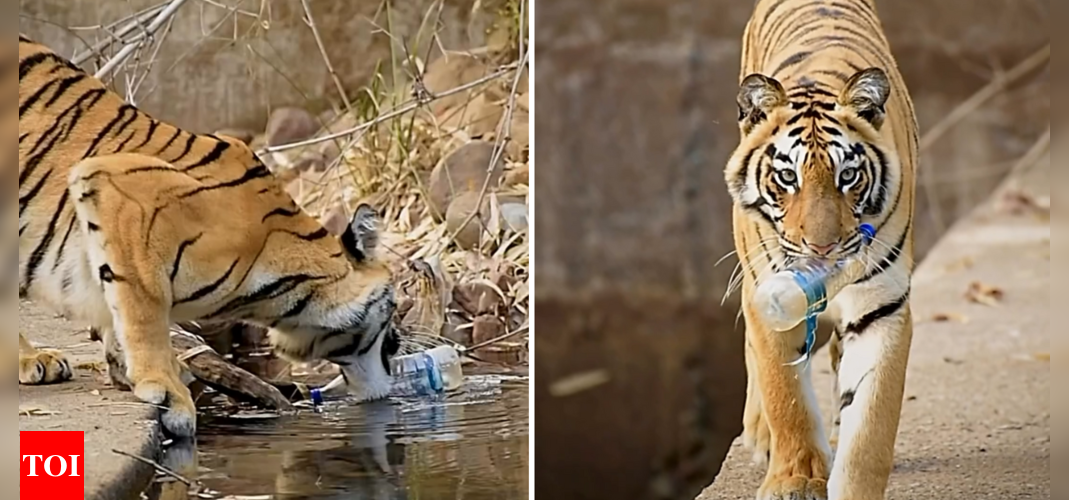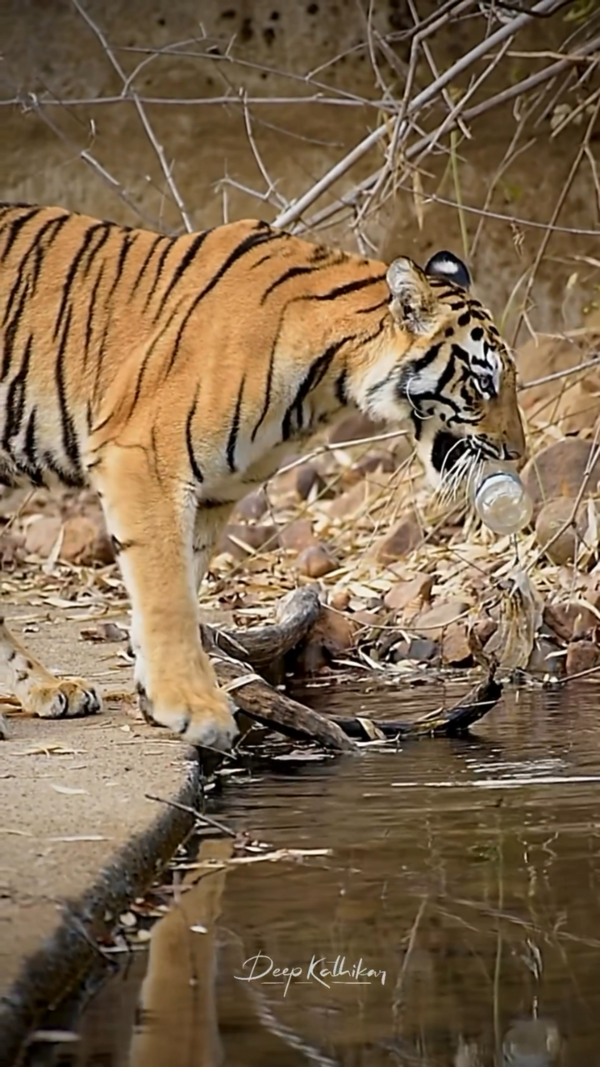
‘Keep your plastic with you’
The official Instagram account of Tadoba Andhari Tiger Reserve shared Deep’s video along with a message for tourists. “Deep Kathikar and his team were waiting at the water body, then she walked across the whole dam wall, one plastic water bottle was moving around in the water and it grabbed her attention, she picked up the bottle and kept the bottle in front of the gypsy, as if she wanted to say keep your plastics with you only (sic)”
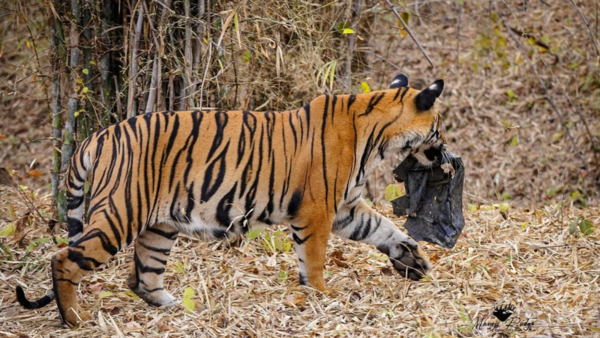
(Image: Manoji Rudy)
‘Litter in wildlife reserves is not new’
Manoji Rudy, a wildlife photographer, spotted a tiger cub playing with a plastic cover during one of his safaris at TATR in 2022. “The cub was playing with the plastic cover, not knowing what it was and tore it into pieces. It must have ingested some of the parts while playing. Sadly, such incidents lead to internal blockages and injuries which can be fatal in some cases. I have gone on many safaris. The forests are vast and clean, it’s mostly the tourists who bring the litter.”
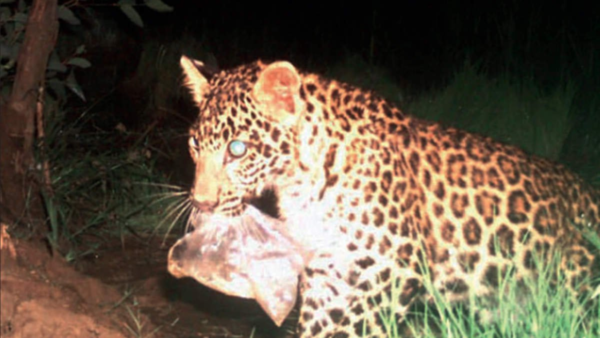
A leopard was seen eating leftovers from a plastic bag in a viral photo
‘While responsible tourism is being promoted, there’s still a long way to go’
Joydeep Mondal, founder of the tour agency Wildchasers India, says that responsible tourism takes a backseat on many occasions. “Efforts are being taken by multiple forest departments across the country. But, at the same time, some reserves have stalls within the forest so tourists can have breakfast there. There’s always a significant amount of litter at these sites,” he says. Apart from this, some forests, like the TATR, have religious places where locals offer prayers. “While responsible tourism is being promoted, there are times when beliefs and guidelines of conservation are intermixed. That’s where the conflict is,” adds Joydeep.
“I believe that the forest department should be responsible for whoever is entering so if there is littering around they are supposed to be cleaning it. Why is it not happening is a question that needs to be answered” — Joydeep Mondal, founder of the tour agency Wildchasers India
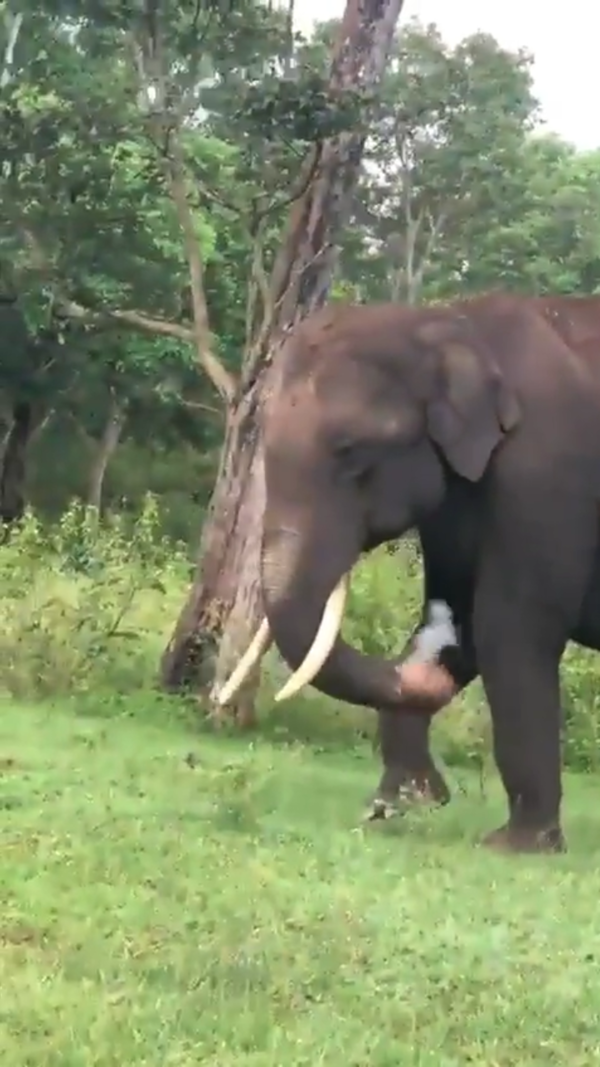
A wild elephant in the Nilgiris was filmed eating a plastic bag
Steps undertaken to eliminate plastic waste
Many wildlife reserves in the country restrict the use of plastic within their areas and have also implemented provisions to aid the cause. Officials at the Pench Tiger Reserve in Maharashtra started a Plastic-Free Pench program where they charge a small amount and put stickers on food packets and bottles carried by the tourists. Once the trip is done, they collect the stickers and return the money as well. “There is plastic being generated on the campus which we plan to pack and sell. We have also procured funds from the district mining authorities to include glass bottles with entry tickets,” shares Prabhu Nath Shukla, deputy director of Pench Tiger Reserve in Maharashtra.
“Along with our forests, we are also working on a plan to eliminate plastic waste in the buffer village areas around the protected forests” — Prabhu Nath Shukla, deputy director of Pench Tiger Reserve in Maharashtra
Tips to follow responsible tourism on safaris
Carry your own refillable water bottle
Collect wrappers and other waste in a bag
Dispose trash at bins provided at the site
Pick up litter that you come across


